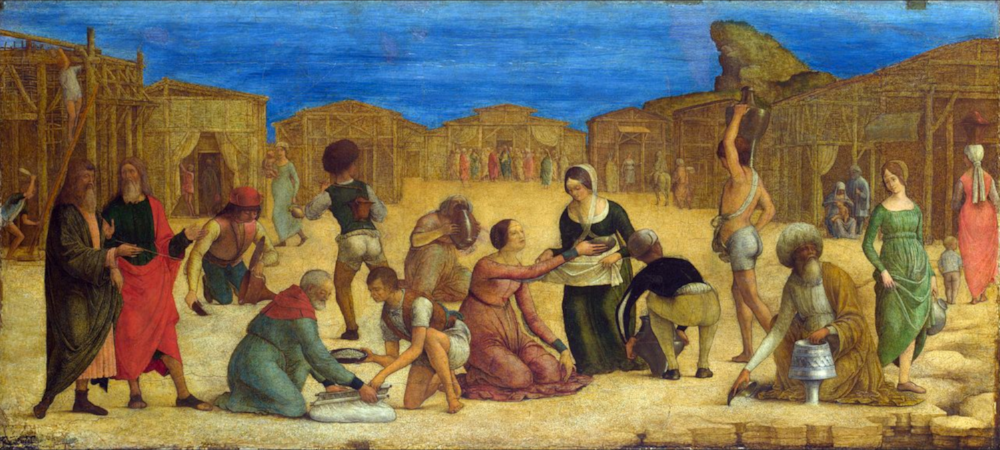A few months ago I purchased an ornamental skull and hung it on a wall. It’s gilt, and made to look like the skull of some kind of bull. I didn’t really know why I did this, except that there was something about the skull that was compelling to me; something edgy but true. In other words I didn’t do this strictly for decorative reasons. I hung it in the bathroom, which freaked the children out a little, but now everyone sees the skull whenever they do the business that living people do.
Weeks later I learned, quite by accident (from Sister Theresa Aletheia on twitter), about the ancient tradition of Memento Mori (1), Latin for “remember death.” It’s the practice of intentionally remembering that death is unpredictable and imminent, to remind us to live well, do what matters, not waste time on vanities. Many people practice Memento Mori by keeping a skull in view, so that they are reminded to live well whenever they see it. I had inadvertently stumbled into my own Memento Mori practice.
So this is what I thought of when I read this week’s Lectionary reading from Mark 8. Jesus informs his followers that he will have to endure suffering, rejection, and death; and then after that he’ll rise again. Some of the apostles, particularly Peter, just can’t deal with this idea. I can just hear him: "What’s this about death? Death has no part of this equation we are working on here! Death is far away, an abstract idea! We don’t have to think about that now! How humiliating that you would even think of letting death take you, Jesus!" And Jesus rebukes Peter, telling him that in his utter denial of death having any part in the narrative, he is “setting [his] mind not on divine things but on human things” (2).
In the season of Lent we are invited to remember our mortality, and our immortality. We are given permission to contemplate what is humanly (but not divinely) considered morbid. We begin by admonishing one another: “Remember that you are dust, and to dust you shall return.” And we end by celebrating the life that comes after the dust, after the death.
God, we know from the narratives and themes within scripture
That the road to life is fraught with death
That the road to safety is fraught with peril
That the road to light is fraught with darkness.
We know from the narratives and themes within nature
That to get to spring we pass through winter.
That to get fertile soil, there must be compost and decay.
That to get to bloom we pass through buried seed.
We know from the narratives and themes within our own lives
That mistakes and failures teach us
That wisdom comes from experience, and often from hardship and loss
That growing up means learning hard lessons.
Death follows us everywhere we go in this life.
Nothing living is immune.
As Christ went down to death for three days
So we must follow:
Down, past death
Death to self (3)
Death to assumption
Death to expectation
Death to control
We are brought low by this humility.
And in turn, out past death we find a mystery:
What we thought was lost is found (4).
Death has hatched something altogether new:
Glorious life!
So, we accept our mission:
To live well,
To face death,
And learn the lesson of resurrection.
Amen
More info about Memento Mori
Mark 8:33
Mark 8:34
Mark 8:35
*If you or your congregation are regular users of the work here at franpratt.com, please consider becoming a patron.


